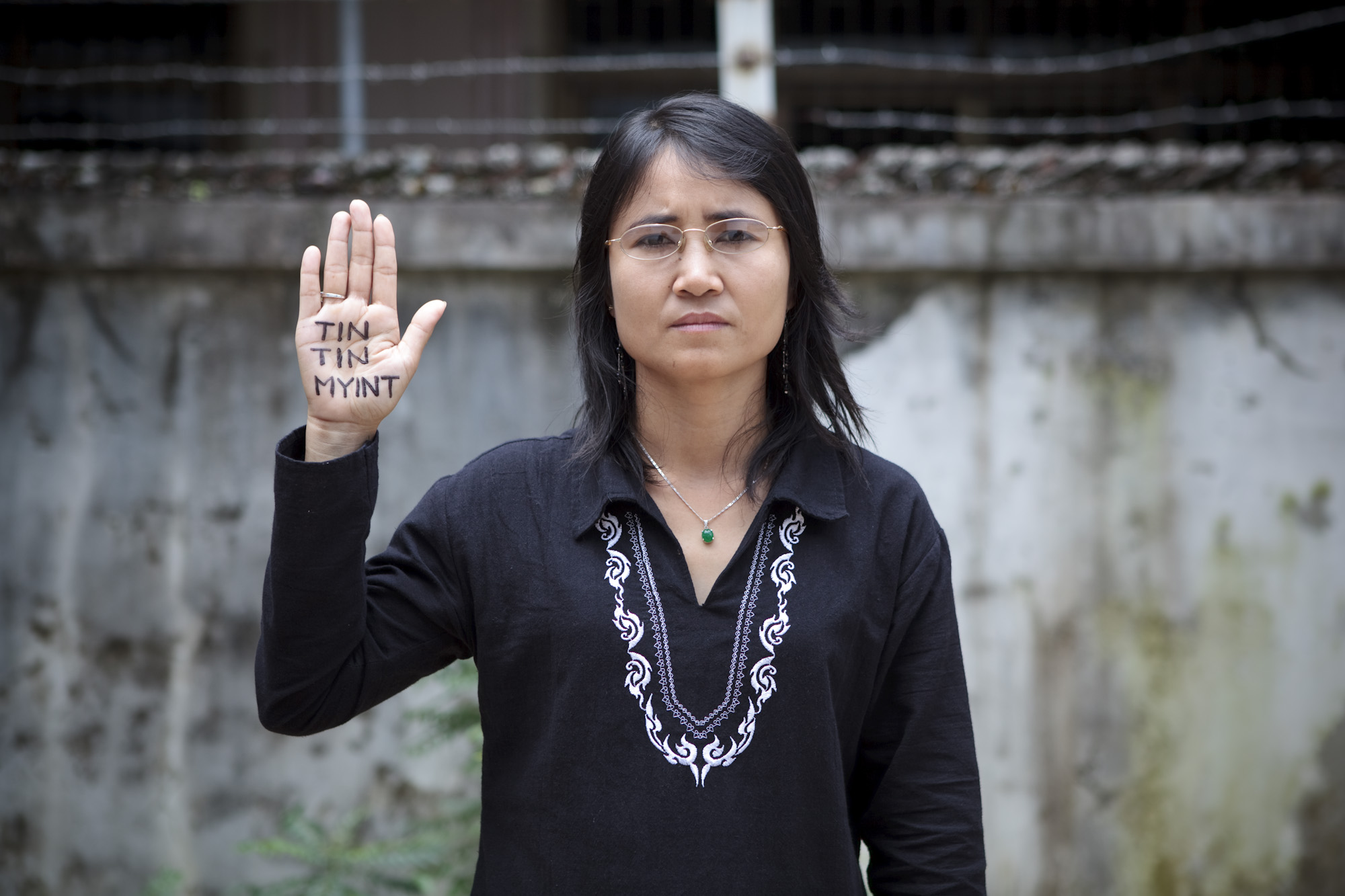One of the clearest markers of progress on human rights improvements in Burma has been the release of hundreds of political prisoners by the government of President Thein Sein since 2011. That progress has reversed starkly over the past year, as dozens of activists and protesters have been imprisoned.
The government took another major step backwards last week when it sidelined prominent human rights defender Ko Bo Kyi and his organisation from a committee charged with resolving the remaining cases of political prisoners.
The joint secretary of the Assistance Association of Political Prisoners-Burma (AAPPB), Bo Kyi has been a consistent critic of the government for decades, having endured over eight years of imprisonment in Burma, followed by 14 years in exile advocating around the world for the release of the more than 2,100 activists.
The Remaining Political Prisoner Scrutiny Committee was established by the Burmese government in early 2013, in part to fulfill a pledge to US President Barack Obama made during his visit to Burma in November 2012. The committee includes presidential office ministers, former political prisoners like Bo Kyi, and members of key political parties. The committee met several times and was largely responsible for a series of amnesties that reduced the number of prisoners to a few dozen. Committee members estimate that 354 prisoners were freed. Bo Kyi was allowed back into Burma and established an office of the AAPPB. The committee was viewed as a successful, if strained, example of a rapport between the government and civil society to overcome decades of distrust and resolve cases of writers, journalists, activists, students and politicians imprisoned because in one way or another they opposed the military regime.
[related]
By early 2014, President Thein Sein claimed there were no more political prisoners. This was not only inaccurate — but came at a time when the authorities were again busy charging dozens of activists who were seeking to exercise new-found freedoms of expression and peaceful assembly, creating new political prisoners. The committee’s chair, the President’s Office Minister and key adviser U Soe Thane, threatened to dissolve the committee because it demanded the government take action to stem the rising number of arbitrary arrests.
Last week the committee was effectively dissolved, with hardliners appointed in the place of people like Bo Kyi and former political prisoner U Nyo Tun. In its place is a 28-member body renamed the Prisoner of Conscience Affairs Committee. The new chairman is Brig Gen Kyaw Kyaw Tun, deputy Minister for Home Affairs, a ministry that is effectively under the military’s control. It also includes senior officials from Special Branch, the director-general of the General Administration Department, and the Department of Corrections, all of which have been key actors in past arrests, intimidation and harassment of political activists and their families. Some former political prisoners remain on the new committee, such as Ko Ko Gyi of the 88 Generation Peace and Open Society Group, as do a dozen representatives of major political parties, including prominent ethnic parties, but they are a weakened group among a core of hardline government officials.
AAPPB’s recent report estimates that 81 political prisoners remain behind bars, including a small number of prisoners from before 2013, and those recently jailed. Dozens of farmers have been imprisoned for protests over the accelerating nationwide scourge of land-grabs by business and the military. A whopping 203 people are awaiting trial, mostly for participation in public protests. In the past two months the government has arrested a number of student activists protesting the proposed national education bill after they staged small, sporadic demonstrations and marches in Rangoon. A dozen people, part of a larger group who had their land in Rangoon seized by the army in 1992 and had maintained a small and peaceful protest camp in downtown Rangoon outside the old Supreme Court building, were also arrested under the criminal code for allegedly obstructing the sidewalk.
Bo Kyi’s exclusion from the new committee and replacing U Soe Thane with security officials are clear signs of a stalled reform process. The creation of new political prisoners and the recent arrests indicate that, while there is substantially more space for dissent than in the past, the government is becoming less and less tolerant of critical voices. This gradual squeeze on peaceful protest harkens back to the dark days of military rule when peaceful protest or expression was not tolerated. The difference is that this new backpedalling is more subtle, targeting less-prominent critics, and with more of an eye on an international community that has embraced the government of Thein Sein with a premature repeal of sanctions, increased assistance to the government, and incautious investment.
Former political prisoners say they do not understand why concerned governments have not reacted more strongly to the failure of the political prisoner committee to complete its work and, more important, the large number of new cases. Excluding voices such as Bo Kyi’s and others who have suffered in the past are signs of serious backsliding. Now is a critical moment for President Obama and key countries like Japan, the UK, France, Germany and members of ASEAN to let President Thein Sein and other Burmese officials know that their support depends on a renewed commitment to a reform process that relegates political prisoners to a bygone era.
This article was originally published by the Bangkok Post on 29 January 2015.



